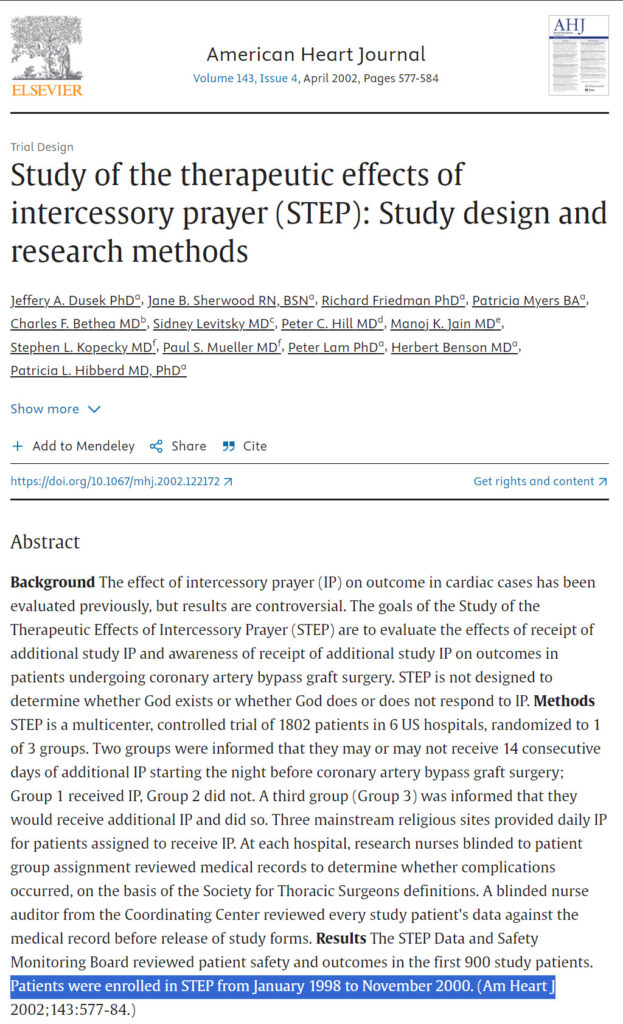Background: The effect of intercessory prayer (IP) on outcome in cardiac cases has been evaluated previously, but results are controversial. The goals of the Study of the Therapeutic Effects of Intercessory Prayer (STEP) are to evaluate the effects of receipt of additional study IP and awareness of receipt of additional study IP on outcomes in patients undergoing coronary artery bypass graft surgery. STEP is not designed to determine whether God exists or whether God does or does not respond to IP.
Methods: STEP is a multicenter, controlled trial of 1802 patients in 6 US hospitals, randomized to 1 of 3 groups. Two groups were informed that they may or may not receive 14 consecutive days of additional IP starting the night before coronary artery bypass graft surgery; Group 1 received IP, Group 2 did not. A third group (Group 3) was informed that they would receive additional IP and did so. Three mainstream religious sites provided daily IP for patients assigned to receive IP. At each hospital, research nurses blinded to patient group assignment reviewed medical records to determine whether complications occurred, on the basis of the Society for Thoracic Surgeons definitions. A blinded nurse auditor from the Coordinating Center reviewed every study patient’s data against the medical record before release of study forms.
Results: The STEP Data and Safety Monitoring Board reviewed patient safety and outcomes in the first 900 study patients. Patients were enrolled in STEP from January 1998 to November 2000.

